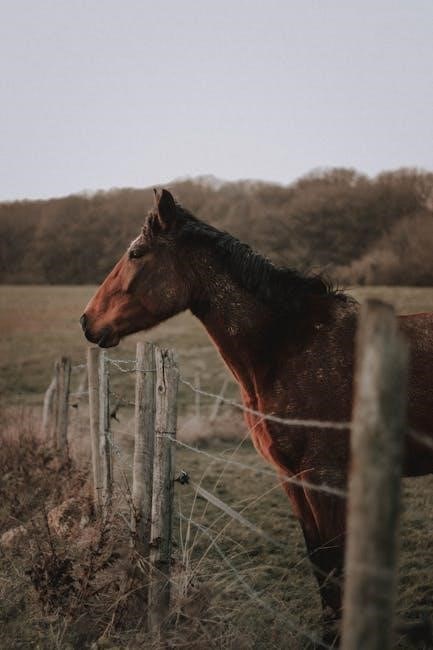Animal Farm, written by George Orwell and published in 1945, is a thought-provoking fable that explores themes of rebellion, power, and corruption․ Set on Manor Farm, the story follows farm animals who overthrow their oppressive owner, Mr․ Jones, to establish a utopian society․ This timeless allegory critiques authoritarianism and highlights the dangers of unchecked power, resonating with historical events and universal truths about human nature․
1․1 Overview of the Book
Animal Farm, a novella by George Orwell, is an allegorical tale of a group of barnyard animals who rebel against their oppressive owner, Mr․ Jones․ Published in 1945, the book explores themes of power, corruption, and the dangers of totalitarianism through the animals’ struggle to establish a self-governed society, reflecting real-world historical events and timeless moral lessons․
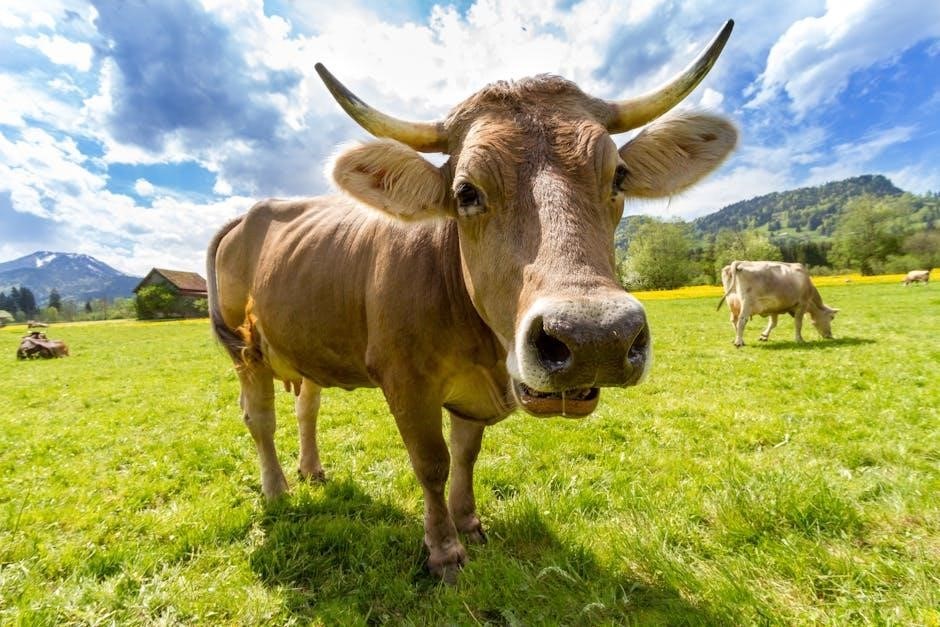
1․2 Historical Context and Relevance
Animal Farm, published in 1945, is an allegorical critique of Stalinism and the Russian Revolution․ Orwell drew inspiration from the rise of totalitarian regimes, reflecting his disillusionment with Soviet communism․ The novella serves as a cautionary tale about the corrupting nature of power and the erosion of ideals, resonating with post-WWII political tensions and remaining relevant today․
Plot Summary of “Animal Farm”
Animal Farm begins with a rebellion led by barn animals against Mr․ Jones, their oppressive owner․ The pigs, claiming leadership, establish a utopian society based on Animalism, but power corrupts, leading to tyranny and betrayal of the revolution’s ideals, ultimately mirroring the oppressive regime they initially rebelled against․
2․1 The Revolution and Takeover
Inspired by Old Major’s vision of a utopian society, the animals of Manor Farm rebel against their oppressive owner, Mr․ Jones․ After a drunken Jones neglects the farm, the animals rise up, driving him out and renaming the farm Animal Farm․ The pigs, led by Snowball and Napoleon, take charge, establishing the Seven Commandments to guide their new society․ Initially, the animals work together, filled with hope and determination to create a better future․
2;2 The Establishment of Animalism
Following the revolution, the animals establish Animalism, a philosophy emphasizing equality and self-governance․ The pigs, led by Snowball and Napoleon, create the Seven Commandments, including “All Animals are Equal,” to guide their new society․ The animals collectively work to maintain the farm, with the pigs managing planning and organization․ This system initially fosters unity and productivity, promising a brighter future for all animals․
2․3 The Rise of Napoleon and Snowball
After the revolution, Napoleon and Snowball emerge as leaders, guiding the farm with contrasting ideologies․ Napoleon focuses on practicality and discipline, while Snowball advocates for idealistic reforms and spreading rebellion․ Their collaboration initially strengthens the farm, but their rivalry intensifies, leading to a dramatic power struggle that reshapes the farm’s future and the animals’ unity․
Allegorical Representation
Animal Farm is a powerful allegory of the Russian Revolution and Stalinism, using animals to depict historical figures and events, warning against authoritarianism while advocating socialism․
3․1 The Russian Revolution and Stalinism
Animal Farm is a direct allegory of the Russian Revolution, with Napoleon symbolizing Stalin and Snowball representing Trotsky․ The novel critiques Stalinism, depicting how power corrupts and ideologies are distorted․ The pigs’ rise mirrors the Communist Party’s consolidation of control, while the animals’ struggles reflect the broader societal impact of totalitarian regimes and the erosion of revolutionary ideals․
3․2 The Critique of Authoritarianism
Animal Farm serves as a scathing critique of authoritarianism, illustrating how power corrupts even those with noble intentions․ The pigs, led by Napoleon, exploit their intellectual superiority to manipulate the other animals, gradually dismantling the principles of equality and justice․ This mirrors real-world authoritarian regimes, where leaders often prioritize control over the well-being of their subjects․
Key Themes and Symbols
Animal Farm explores themes of power corruption, equality, and propaganda through symbolic characters like the pigs, representing authoritarian leaders, and the Seven Commandments, embodying lost ideals․
4․1 The Corruption of Power
The pigs’ rise to power in Animal Farm illustrates how authority corrupts even those with idealistic beginnings․ Initially united, they exploit their intellectual superiority, manipulating rules and resources for personal gain․ This mirrors Stalin’s regime, where power led to abuse, highlighting the dangers of unchecked leadership and the erosion of equality․
4․2 The Importance of Education
Educating the animals is central to Animal Farm’s themes, as it empowers them to challenge oppression․ The pigs initially teach others to read and think critically, fostering unity and progress․ However, education becomes a tool of control, used by the pigs to manipulate facts and maintain power, highlighting the dual role of knowledge in liberation and domination․
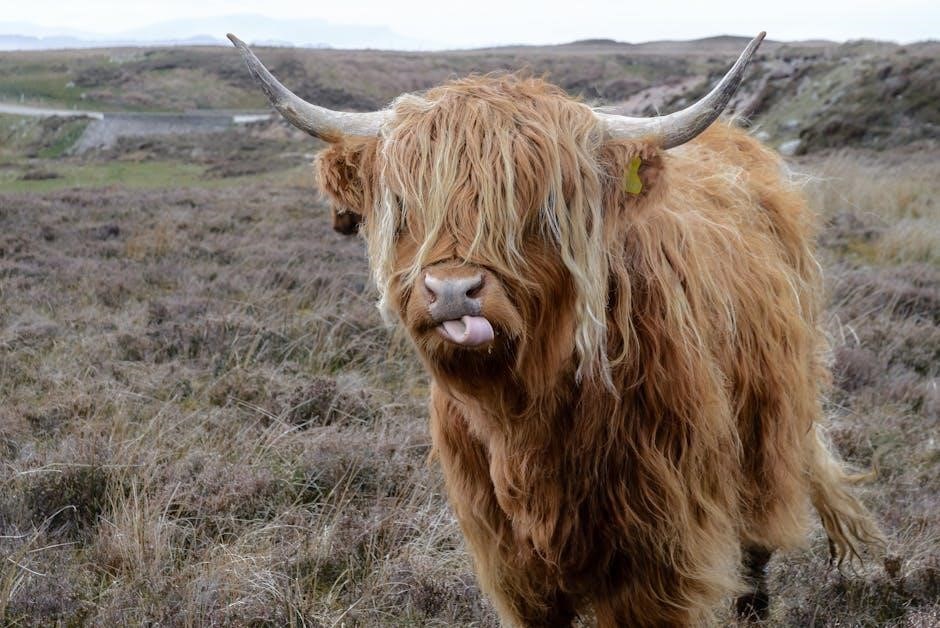
4․3 The Role of Propaganda
Propaganda plays a pivotal role in Animal Farm, as Squealer manipulates information to justify the pigs’ actions and maintain control․ Through selective truth-telling and rewriting history, the pigs distort reality, ensuring loyalty and compliance․ This highlights Orwell’s critique of how authoritarian regimes use propaganda to shape public perception and sustain power, often at the expense of truth and freedom․
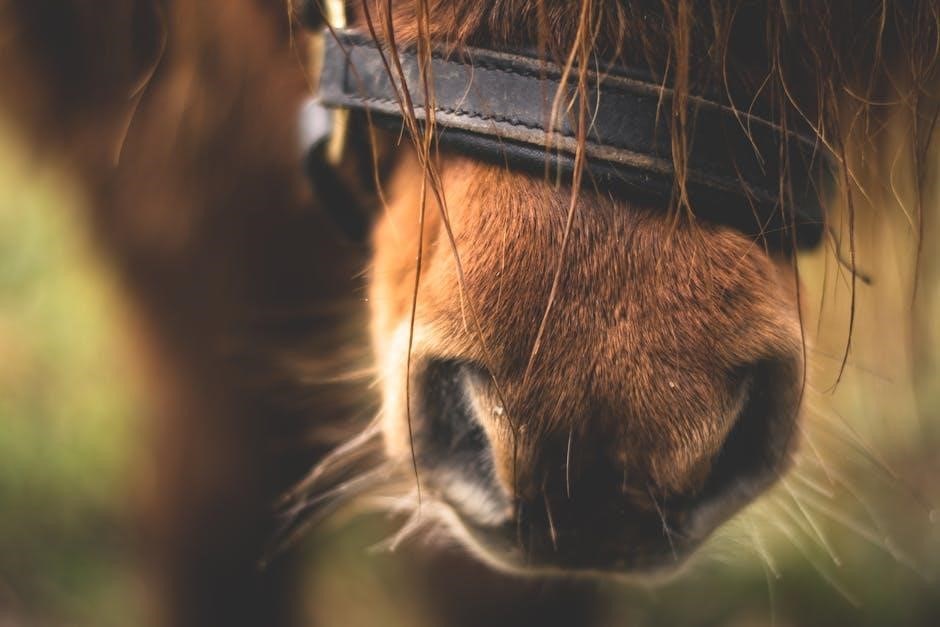
Main Characters Analysis
The novel’s characters, including Napoleon, Snowball, Boxer, Benjamin, and Squealer, represent diverse ideologies and traits, symbolizing real-world figures and universal human tendencies․ Their roles and interactions drive the story’s themes of power, loyalty, and corruption, offering profound insights into human nature and societal dynamics․
5․1 Napoleon: The Power-Hungry Leader
Napoleon, a cunning and manipulative pig, rises to power after the revolution, embodying the corrupting influence of authority․ He consolidates control by exploiting propaganda and fear, aligning with Stalin’s authoritarian regime․ His actions erode the farm’s ideals, highlighting how power can distort even noble intentions, leading to oppression and betrayal of the revolution’s principles․
5․2 Snowball: The Idealist
Snowball, a visionary and intelligent pig, represents the idealistic spirit of the revolution․ He advocates for equality and justice, inspiring the animals with his passionate speeches and plans for a better future․ However, his clash with Napoleon leads to his exile, symbolizing the suppression of idealism by authoritarian forces, mirroring Trotsky’s fate in the Russian Revolution․
5․3 Boxer: The Loyal Worker
Boxer, a strong and dedicated horse, embodies loyalty and hard work․ He toils tirelessly for Animal Farm, driven by his commitment to its ideals․ Despite his physical strain and eventual decline, Boxer remains steadfast, symbolizing the enduring spirit of labor and sacrifice․ His unwavering dedication highlights the exploitation of the working class by those in power․
5․4 Benjamin: The Skeptic
Benjamin, the wise and aged donkey, remains skeptical of the farm’s transformations․ He rarely speaks but offers sharp insights, questioning the pigs’ motives․ His cynicism stems from a deep understanding of power dynamics, making him a voice of reason․ Benjamin’s character serves as a cautionary figure, highlighting the dangers of blind obedience and the erosion of ideals․
5․5 Squealer: The Propagandist
Squealer, a clever and persuasive pig, serves as the farm’s propagandist․ He manipulates language to justify the pigs’ actions, distorting reality to maintain control․ With his intelligence and eloquence, Squealer rationalizes the corruption of Animalism, ensuring the animals remain loyal to Napoleon’s rule․ His role underscores the power of misinformation and ideological manipulation․
Historical Context and Parallelisms
Animal Farm mirrors the Russian Revolution and Stalinism, with Napoleon representing Stalin․ It critiques authoritarianism, highlighting how power corrupts even noble ideals, serving as a timeless warning․
6․1 The Russian Revolution
Animal Farm serves as a powerful allegory for the Russian Revolution, with Napoleon symbolizing Stalin and Snowball representing Trotsky․ The novel mirrors the Bolsheviks’ rise to power, the displacement of the aristocracy, and the eventual corruption of revolutionary ideals․ Orwell critiques Stalinism through the pigs’ consolidation of power, highlighting how authoritarian regimes often betray their founding principles, leading to oppression and inequality․
6․2 Stalinism and Totalitarianism
Animal Farm vividly portrays Stalinism through Napoleon’s rise to power, mirroring Stalin’s consolidation of control in the Soviet Union․ The novel depicts how totalitarian regimes manipulate principles like the Seven Commandments to justify oppression․ Napoleon’s rule exemplifies the dangers of unchecked authority, propaganda, and the suppression of dissent, reflecting the autocratic nature of Stalinist governance and its erosion of freedom․
6․3 The Cold War and Orwell’s Perspective
Orwell’s Animal Farm reflects his critical views on totalitarianism, shaped by the Cold War era․ Written during WWII, the novel critique’s Stalin’s regime and serves as a cautionary tale about authoritarianism․ Orwell’s perspective highlights the dangers of propaganda, manipulation, and the erosion of freedom, resonating with post-war fears of Soviet expansion and ideological conflict․
Availability and Download Options
Animal Farm is widely available in PDF format on platforms like Google Books and Amazon․ Ensure to download from legal sources to support authors and avoid illegal distributions․
7․1 PDF Versions of “Animal Farm”
Animal Farm is widely available in PDF format for easy access․ You can download it from platforms like Google Books, Amazon, or academic databases․ Ensure to use legal sources to avoid copyright infringement and support authors․
Legal downloads often include additional features like annotations and study guides, enhancing your reading experience․
7․2 Legal and Reliable Sources
Animal Farm PDFs are available on platforms like Project Gutenberg, ManyBooks, and university libraries․ These sources offer free, legal access to the novel, ensuring you support copyright laws․ Always verify the credibility of the website to avoid unauthorized downloads and protect your device from potential risks․
Reception and Criticism
Animal Farm has been acclaimed as a classic allegory, praised for its insightful critique of authoritarianism․ Critics highlight its timeless relevance and educational value, making it a cornerstone of literary and political discourse․
8․1 Literary Reviews and Analysis
Animal Farm is widely regarded as a literary masterpiece, praised for its satirical depth and allegorical representation of historical events․ Critics emphasize its exploration of power corruption and authoritarianism, offering a poignant warning against the dangers of totalitarianism․ Orwell’s unique storytelling ability and profound insights into human nature have solidified its place as a timeless classic in world literature․
8․2 Political Interpretations
Animal Farm is often interpreted as a political allegory of the Russian Revolution and Stalinism․ Napoleon represents Stalin, while Snowball embodies Trotsky, highlighting the power struggle and betrayal within revolutionary movements․ The pigs’ gradual corruption mirrors the rise of authoritarianism, illustrating how ideals of equality and justice can be distorted by those in power․
The novel critiques totalitarian regimes, showcasing how propaganda and manipulation maintain control․ The altering of the Seven Commandments reflects the fluidity of political ideology, where leaders justify oppression under the guise of equality․ Orwell’s fable serves as a warning against unchecked power and the erosion of democratic principles in any society․
Legacy of “Animal Farm”
Animal Farm remains a timeless classic, influencing literature, politics, and education․ Its allegorical insights into power and corruption continue to resonate globally, inspiring critical thinking and reflection on authoritarianism and societal structures․
9․1 Impact on Literature and Politics
Animal Farm has profoundly influenced literature and political discourse, offering a powerful critique of authoritarianism․ Its allegorical depiction of the Russian Revolution and Stalinism has made it a cornerstone of political satire, inspiring countless adaptations and analyses․ The novel’s exploration of power dynamics remains relevant, shaping discussions on governance and societal structures worldwide․
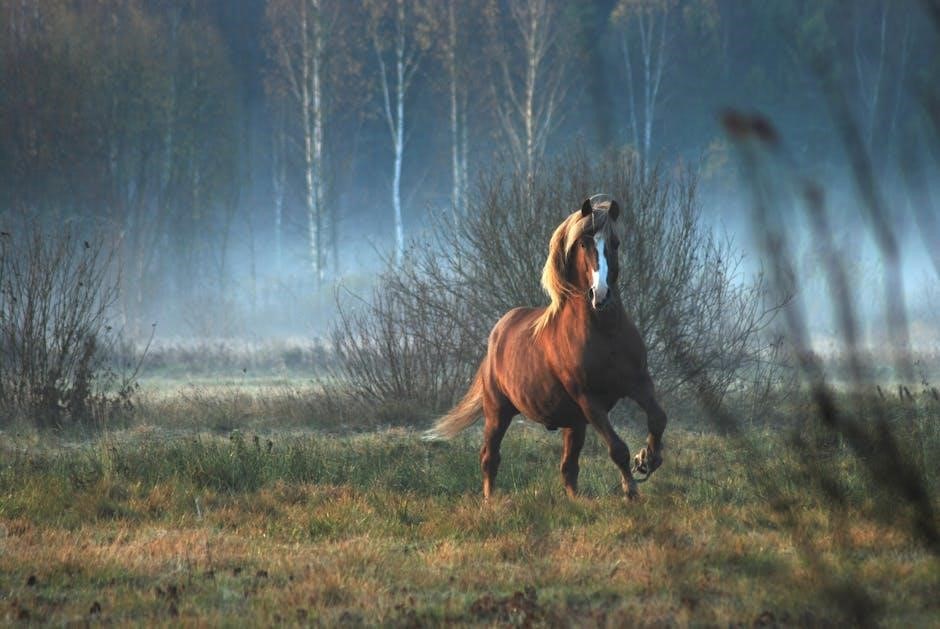
9․2 Educational Significance
Animal Farm is widely studied in schools, offering insights into political satire, morality, and history․ Its allegorical nature helps students grasp complex concepts like authoritarianism and power dynamics, fostering critical thinking and ethical discussions․ The novel remains a vital tool for teaching literature, history, and civic education, highlighting Orwell’s timeless relevance․
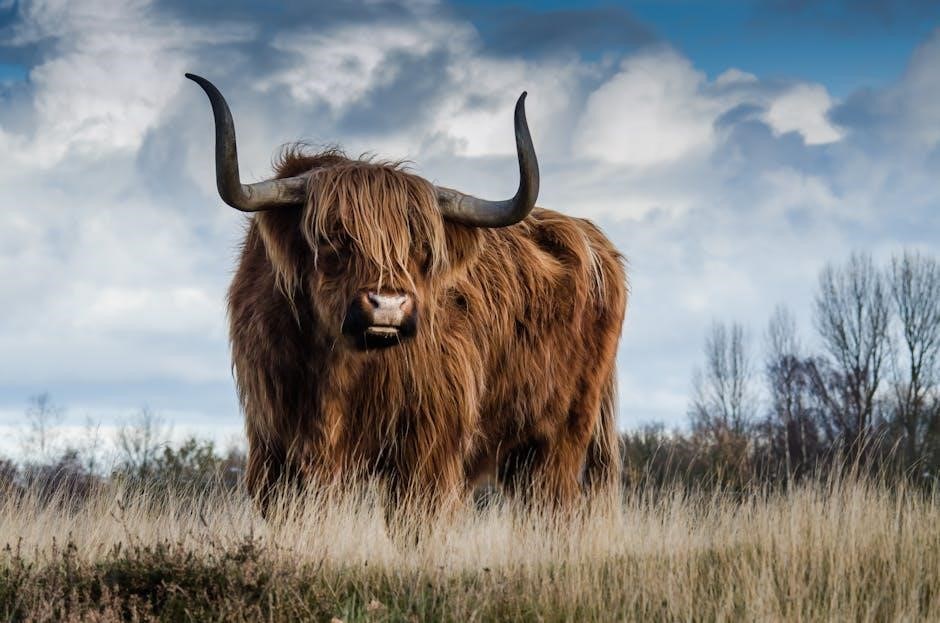
Modern Relevance
Animal Farm remains strikingly relevant today, offering timeless lessons on power, corruption, and authoritarianism․ Its themes resonate with contemporary issues, such as political manipulation and the erosion of freedom, serving as a cautionary tale for modern society․
10․1 Applying the Book’s Lessons Today
The timeless themes of Animal Farm resonate strongly in today’s world․ The novel’s exploration of propaganda, manipulation, and the corrupting influence of power serves as a cautionary tale․ It reminds us to remain vigilant against authoritarianism and to critically evaluate leadership․ By understanding these lessons, readers can better navigate contemporary political and social challenges, fostering a more informed and discerning society․
10․2 Comparisons with Contemporary Issues
The themes of Animal Farm resonate with modern issues like authoritarianism, propaganda, and manipulation․ Contemporary parallels include the rise of fake news, political corruption, and the erosion of democratic values․ Orwell’s critique of power dynamics remains relevant, offering insights into today’s challenges, such as leadership accountability and the exploitation of information in shaping public opinion and societal structures․
Animal Farm remains a timeless critique of power, corruption, and authoritarianism․ Its universal lessons on democracy, equality, and the dangers of manipulation continue to resonate globally, offering enduring relevance and insight into human nature and societal structures․
11․1 Final Thoughts on the Book’s Importance
Animal Farm is a timeless classic that masterfully explores themes of power, corruption, and the erosion of ideals․ Its allegorical nature provides profound insights into human nature, making it a vital read for understanding historical and contemporary societal dynamics․ Orwell’s work serves as a cautionary tale, reminding us of the dangers of authoritarianism and the importance of critical thinking․
